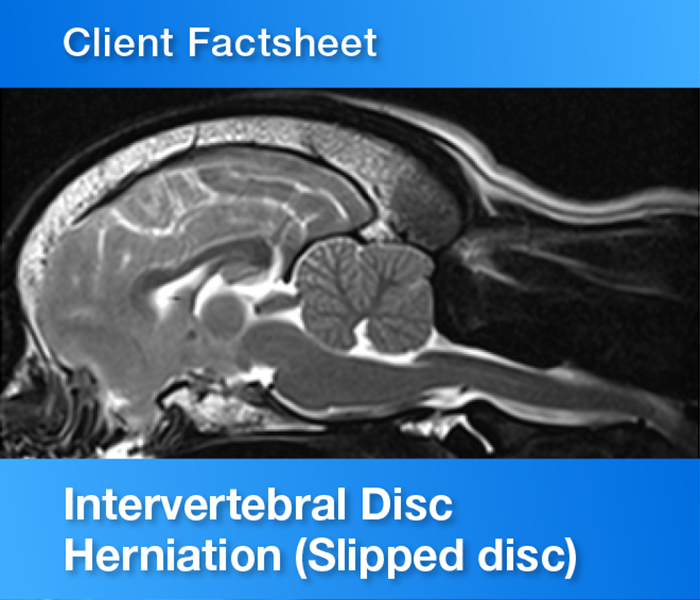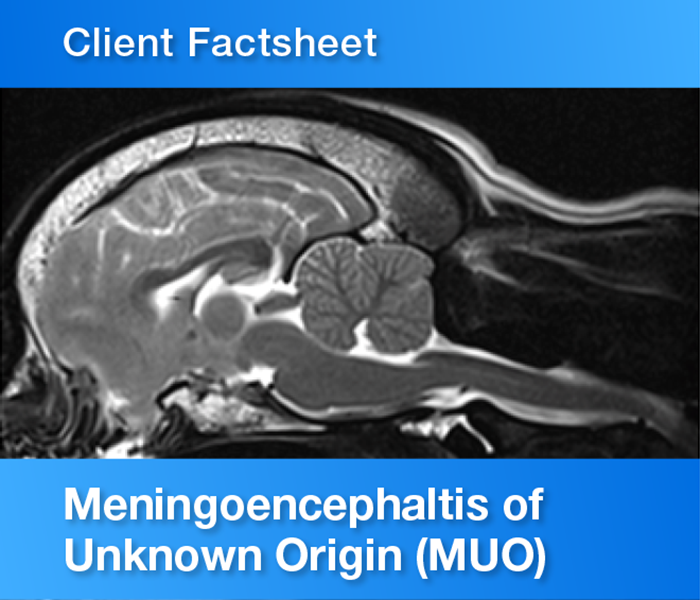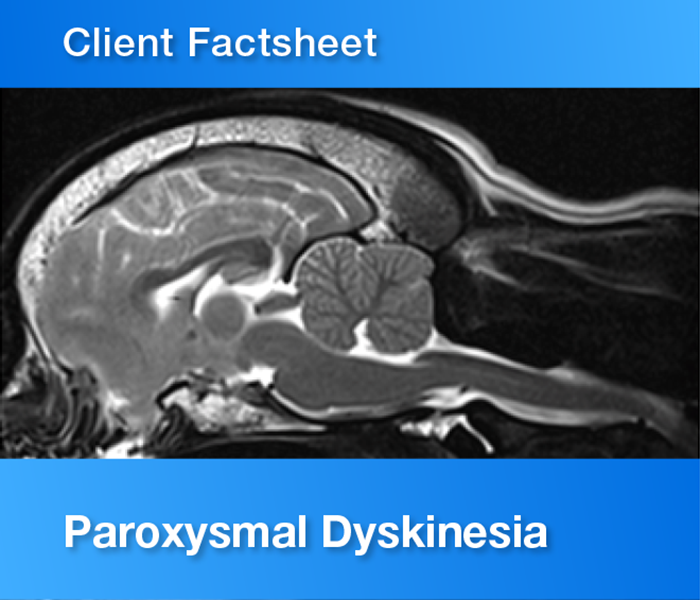
Steroid Responsive Meningitis Arteritis factsheet
The central nervous system (CNS) is the control centre for the body. It is made up of the brain, spinal cord and the covering of these, the meninges. Meningitis refers to inflammation of the meninges.
Steroid responsive meningitis-arteritis (SRMA) in dogs is an ‘immune mediated’ or ‘auto-immune’ condition. Whilst in humans it is often caused by a viral or bacterial infection of the central nervous system (CNS), infections of the CNS are uncommon in dogs in the UK due to vaccinations.
There are many different types of immune-mediated condition in animals. The underlying mechanism is complex but often involves the immune system targeting a protein (foreign substance or antigen) it comes into contact with in the environment, or minor infections from bacteria/viruses/parasites that match a protein in the body, causing an aberrant inflammatory reaction.
SRMA is an immune-mediated disease that affects the arteries in the covering of the nervous system (the meninges), but other areas in the body can be affected such as the joints.
What causes SRMA?
We are not normally able to establish why an animal develops an immune-mediated disease such as SRMA. Why the immune system suddenly becomes ‘confused’ and decides to attack the CNS is a mystery. We recognise SRMA most commonly in young (less than two years of age) dogs of certain breeds including Beagles, Boxers, Bernese mountain dogs and Weimeraners, but dogs of any breed can be affected. A complex interaction of genetics and the animal’s environment probably contribute to developing the condition.
It seems that the juvenile immune system produces inflammation and antibodies (a protective protein produced by the immune-system in response to the presence of a foreign substance, or antigen) against a normal body protein – in SRMA this is a protein expressed by the walls of blood vessels in the meninges.
There is no infection with this condition and the condition is therefore not contagious.
What are the clinical signs (symptoms) of SRMA?
The main clinical signs of SRMA are pain, stiffness of the gait, reluctance to move the neck, hunched back and often a fever – this pain is severe in the neck but can also be present to a lesser extent in the lower back. The pain is most severe when trying to touch the chin to the chest. Other neurological abnormalities are not expected with this condition. Most dogs will have no appetite and be reluctant to exercise.
Inflammation can affect other parts of the body – typically the joints. Swollen joints can also cause a stiff and stilted way of walking. Rarely, animals with SRMA can have inflammation of other inner body surfaces, like the covering of the heart (potentially causing abnormal heart rhythm), lungs and abdominal contents (causing the development of some fluid).
How is SRMA diagnosed?
Unfortunately, the diagnosis of inflammatory CNS disease cannot be based solely on the signs shown by a patient. A diagnosis is normally made on the basis of firstly excluding other causes of spinal pain (like bone or soft tissue infections, immune-mediated joint disease, infections) with blood tests and X-rays. Then, a spinal fluid sample is collected from the neck or lower spine (or both) in a sterile manner under general anaesthesia. The demonstration of inflammation, and the presence of a specific type of inflammatory cell, will facilitate a presumptive diagnosis. Although infection is very unlikely, we normally run a panel of tests to exclude this possibility.
Is SRMA treatable?
Thankfully yes and, in the long term, most dogs will be able to live a normal life. The mainstay of treating SRMA is suppression of the immune system with drugs, particularly high doses of corticosteroids like Prednisolone, to counteract the ‘over-excitation’ of the immune system. The administration of high doses of steroids by injection, or orally, very often results in significant and rapid improvement, or resolution of the clinical signs. The dose is then reduced slowly over the course of several months until the stimulus for the immune system has gone.
Unfortunately, side effects are often seen with steroid use. Common dose-dependent side effects of steroids include increased thirst and hunger (consequently urination and weight gain), lethargy, panting, and increased risk of infections (respiratory, urinary etc).
Occasionally, additional medications are required, either to aid suppression of the immune system, or to allow us to reduce the steroid dose without fear of relapse. Most of these second-line drugs are technically ‘chemotherapy’ drugs – but it should be noted that we use them at relatively low and safe levels and side effects are rare. We commonly use cytosine arabinoside (Cytarabine) as an injection, when patients are hospitalised. Other medications like Cyclosporine and Azathioprine can be used orally.
Your veterinary neurologist or primary care vet will discuss with you what side effects may be expected with medication.
What is the prognosis of SRMA?
The prognosis for SRMA is generally very good, with most patients improving after two to three days of treatment and entering clinical remission within two weeks.
Treatment with steroids is normally required for five to seven months, after which treatment can be stopped and a normal length and quality of life can be expected.
Relapses of SRMA are possible either during the course of treatment or after treatment has been stopped. Roughly 20% of patients with SRMA will relapse. If they do, the clinical signs will be similar or identical to the original syndrome. Normally with a ‘step-back’ in the treatment regime a relapse can be successfully treated.
Occasional visits to your vet may be required during the course of treatment. Your vet may suggest blood tests every few months to assess the function of organs that may be affected by treatment. How often this is required will be dependent on the individual’s response to treatment.
If you have any concerns about your dog, or their treatment, do not hesitate to contact your vet.


